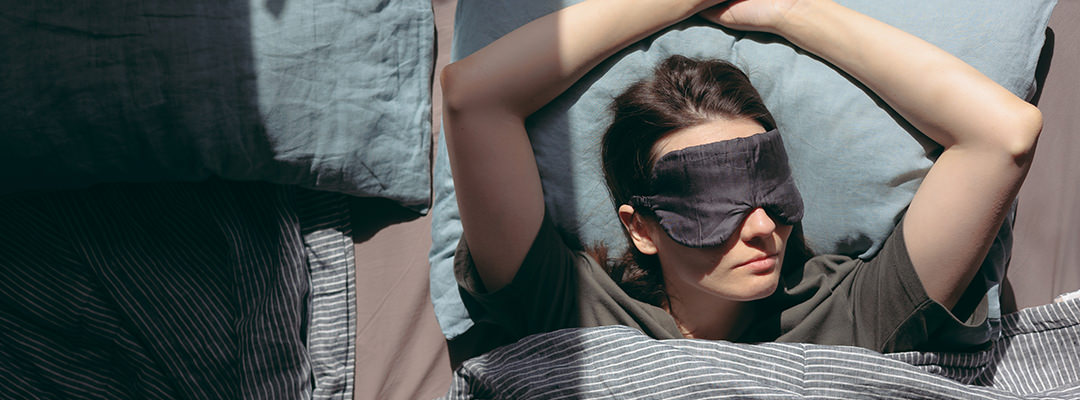Anyone who’s ever gone on holiday has probably heard the phrase “jet lag” at least once. If you’ve experienced it yourself, you’ll know that it’s never a nice way to start your time away from home, whether you’re taking a vacation, travelling for work, or seeing family. Jet lag can mess with our bodies and make sleeping in our new home-away-from-home a nightly battle.
But what is jet lag, exactly? What causes it, and — most importantly — what can we do about it? Let’s deep dive into how to beat jet lag next time you fly.
What is jet lag?
Jet lag is a temporary sleep disorder that occurs when your body’s natural rhythm is violently disrupted. Your body maintains a natural balance between night and day, known as your circadian rhythm. This gives you an instinctual awareness of when to sleep and rebuild your body, and when to be alert so that you can put that energy towards going about your day. When the night and day around you goes into a sudden shift, your body will have trouble adjusting to its new environment.
What causes jet lag?
Jet lag happens when our body’s perception of night and day is in conflict — when what we sense in our circadian rhythm doesn’t match the world we see around us. Most people experience jet lag when crossing into a different time zone. Here are the factors that determine how badly our jet lag will affect our bodies.
Direction
The direction you’re flying in has a major impact on the severity of your jet lag. Experts agree that flying east — for example, from the United States to the UK — will be harder on the body because you’re essentially jumping into the future. It’s like daylight savings time on steroids. Your body has to scramble to make up for the gap in its rhythm. If you’re flying in the opposite direction, you’ll be gaining extra time that your body can use to recharge.
Distance
After a distance of about two time zones, the body begins to have serious difficulty adjusting. This means that a long trip across the Atlantic will cause more havoc to your system than a short jaunt from Ireland to France. In general, it’s believed that the body takes one day per hour of time difference to recuperate. This means that you should rebalance from a one-hour difference within twenty-four hours (this is what happens during daylight savings time) and a week to fully rebalance from a seven-hour time difference.
Environment
Travelling is never easy on the body, and a challenging environment can make jet lag even worse. This includes things like hot or cold temperatures on the aeroplane, low levels of oxygen or humidity while in flight, or air that’s heavily polluted (such as being near a cigarette smoker, or smoking them yourself). You may also have a harder time if you go for long stretches without any physical activity. You may not be able to control everything around you, but you can dress in layers and try to keep yourself moving while you travel.
Age
Growing older may mean growing wiser, but it doesn’t mean outgrowing jet lag. Elderly people may find that they experience jet lag more intensely and take longer to readjust to their new time zone. Older men and women may want to take extra precautions and medications to help recalibrate their sleep patterns.
Frequency
You’d think that flying back and forth regularly would get your body used to the sensation and adjust your circadian rhythm more easily. Sadly, this is not so. Our bodies aren’t naturally built to shift from one time zone to another (our species predates frequent flyer miles by at least a few millennia), and recurring jet lag can put a lot of strain on your system. Pilots, flight attendants, and regular business travellers are at the highest risk of elevated jet lag.
How does jet lag affect our health?
We all know that jet lag is uncomfortable. Let’s break down exactly what happens when we suffer from jet lag while travelling.
Sleep problems
Jet lag plays havoc with our ability to get a good night’s sleep. You may find that no matter how exhausted you are, you can’t get to sleep, or you may find that you sleep and wake erratically in patches throughout the night. By not getting enough sleep, your body can start developing other health problems, too.
Cognitive impairment
Many people who experience jet lag also find their reasoning and awareness impacted. This can mean that you have trouble keeping track of details, concentrating, or maintaining academic performance. This is why, if you’re travelling for work, it’s always a good idea to give yourself time to recover so you can perform at your best.
Mood fluctuations
If you’re away on holiday, you probably don’t want to ruin your travel plans with a foul mood. Unfortunately, jet lag can make you feel irritable without cause, because your body and mind are under so much strain. While recovering from jet lag, you may have to be extra mindful of the way you interact with people and perceive your circumstances so that you can enjoy yourself (and not wind up spending your holiday alone!)
Daytime fatigue
When you’re dealing with jet lag, it’s normal to feel tired throughout the day, even if you’ve managed to get a good night’s sleep the night before. This is because your brain is still sending signals to your body that it’s nighttime. You may find yourself with low energy levels, wanting to sleep throughout the day, or falling asleep early in the evening.
Stomach problems
Jet lag can imitate a lot of the effects of not getting enough sleep (even if you have!), and that includes problems with digestion. This can manifest as nausea, diarrhoea, or vomiting. While recovering from jet lag, it’s a good idea to treat your stomach kindly (save the hamburger date for a few days) and drink lots of water.
How long does jet lag last?
In general, jet lag lasts from a day up until about a week. A good rule of thumb is one day for each hour of time passed — travelling to a place with a one-hour time difference will take about a day to recover from, a two-hour time difference should take about two days, and so forth. As we saw above, this can be a little more if you’re travelling east and a little less if you’re travelling west.
When should you see a doctor for jet lag?
Jet lag is a pain and a half, but the good news is that it’s not serious and it will usually go away on its own fairly quickly. If it isn’t, however, it may be a sign that your body isn’t handling it properly or of an underlying health condition.
If you’re still experiencing jet lag-like symptoms more than ten days after arriving at your destination, you can check in with a health professional to make sure there are no underlying problems, and see if they can recommend medication that will help you adjust your internal rhythm.
If you work in a profession that means you’re flying across time zones regularly, you can also see a doctor about regular preventative treatments that may give you an easier time adjusting when you travel.
How can we thwart jet lag when travelling?
Unfortunately, there’s no quick-action pill for jet lag. However, there are definitely steps we can take to make the transition easier as our circadian rhythm adjusts to its new environment. Let’s look at some tricks and tools to beat jet lag.
Begin adjusting before travel
It’s incredibly helpful if you can give your body a head start before you fly. If you’re going to be travelling east, try going to bed a bit earlier each day. If you’re flying west, go to bed a little bit later. See if you can push your body to begin inhabiting the time zone you’ll be travelling to a little bit at a time, so that it isn’t such a dramatic shock to your system when you arrive.
Stay hydrated
This is good advice for just about any aspect of your health, but it certainly plays a positive role in lessening the effects of jet lag. Drinking lots of water keeps your mind clear and your body functioning at its best so you can enjoy your holiday as your jet lag fades away.
Get some sun
Since our bodies’ natural rhythms are determined by daylight, exposing yourself to the open sky as much as possible during your first few days will go a long way towards recalibrating your circadian rhythm. Your body recognizes light and darkness as signals that mean it’s time to sleep or it’s time to energise. If you power up on sunlight during the daytime and relax in dim light during the evening, your body will understand its new schedule a lot faster.
Consider sleep aids
If you’re travelling a long distance with a substantial difference in time zones, consider taking some sleep medication before bed to get you to sleep at the right hour. This will help you get to sleep and stay that way, instead of sleeping and waking intermittently throughout the night. Then you can join the rest of the world around you more easily and more well rested, too.
Jet lag is an unfortunate reality of our contemporary transcontinental living, but it doesn’t have to get in the way of a good holiday, family reunion, or business trip. By staying mindful and aware of your body before and after travelling, you can lessen the effects of jet lag and focus on what really matters.
Did you like it?4.3/5 (23)





